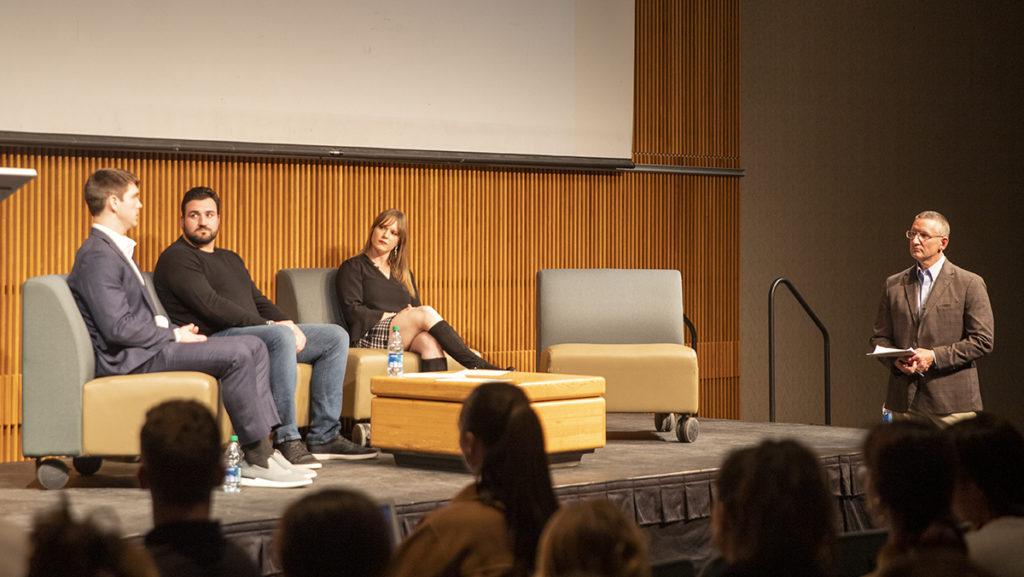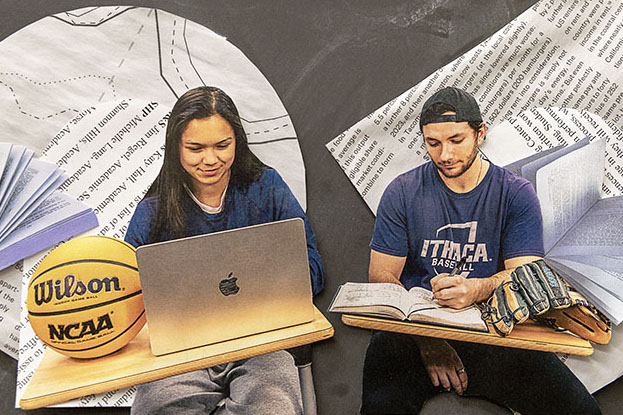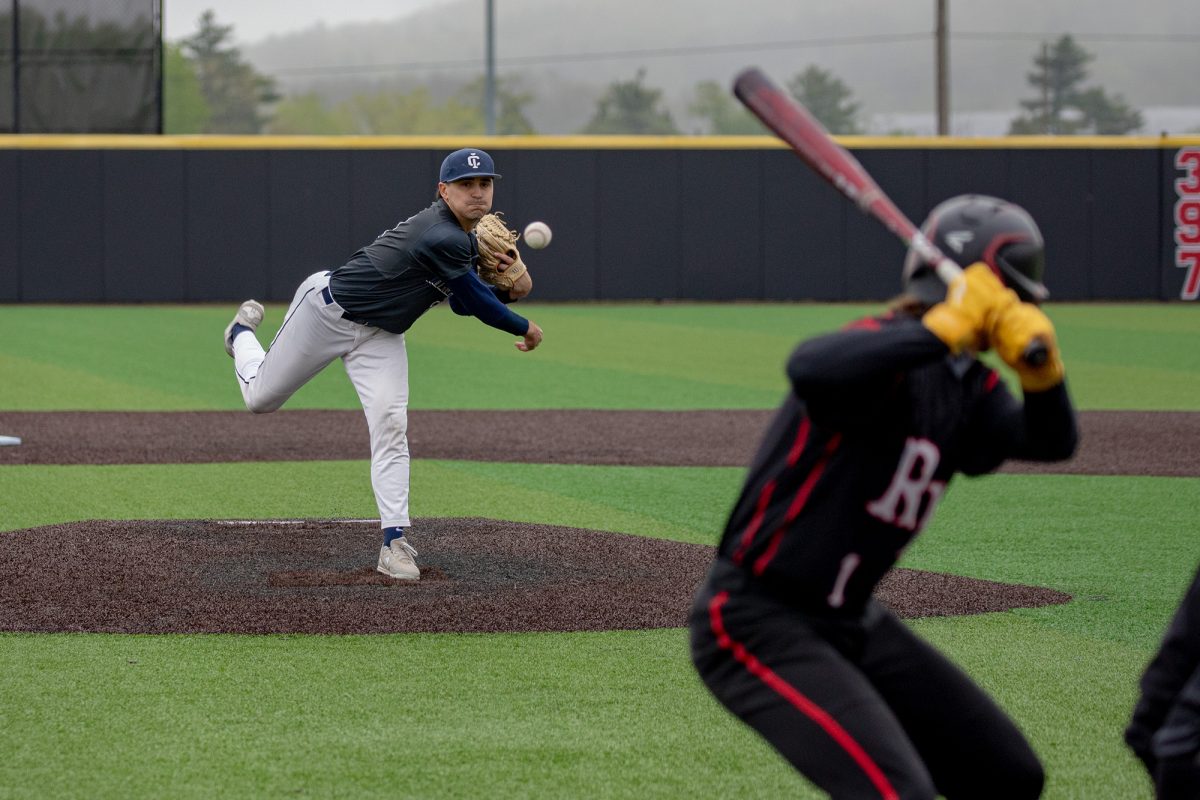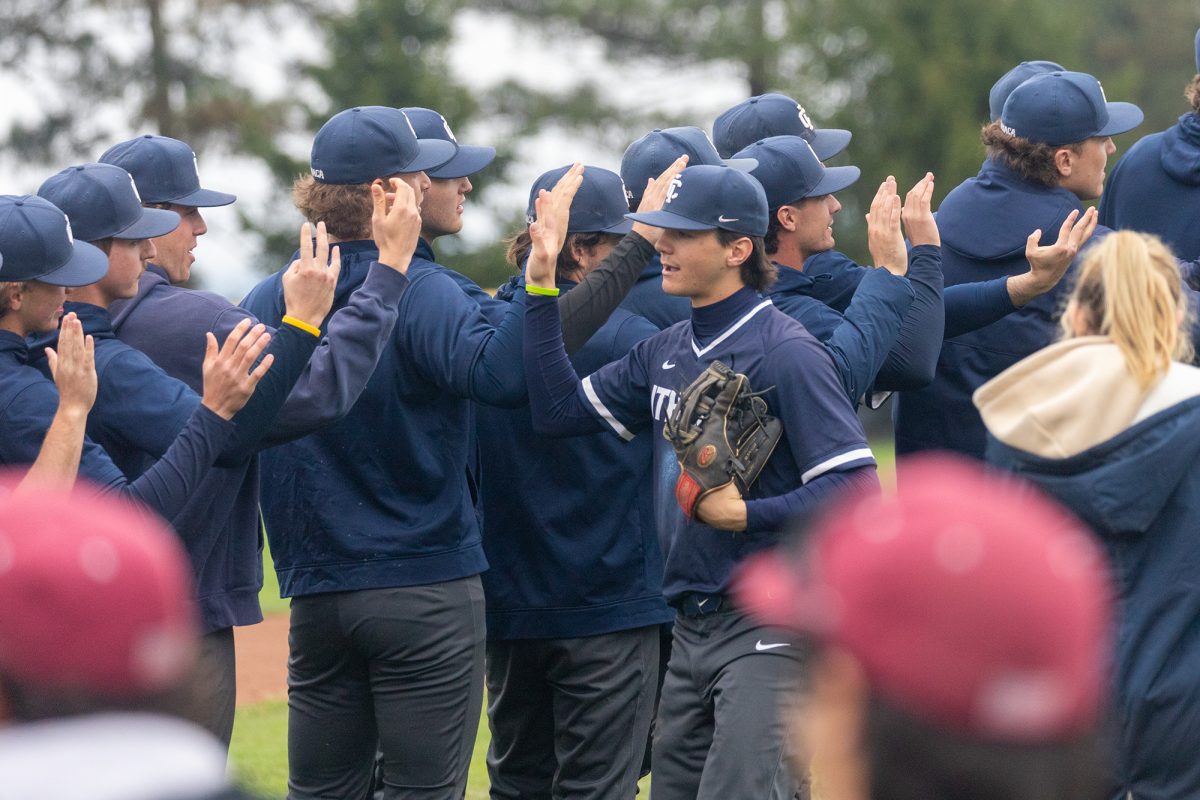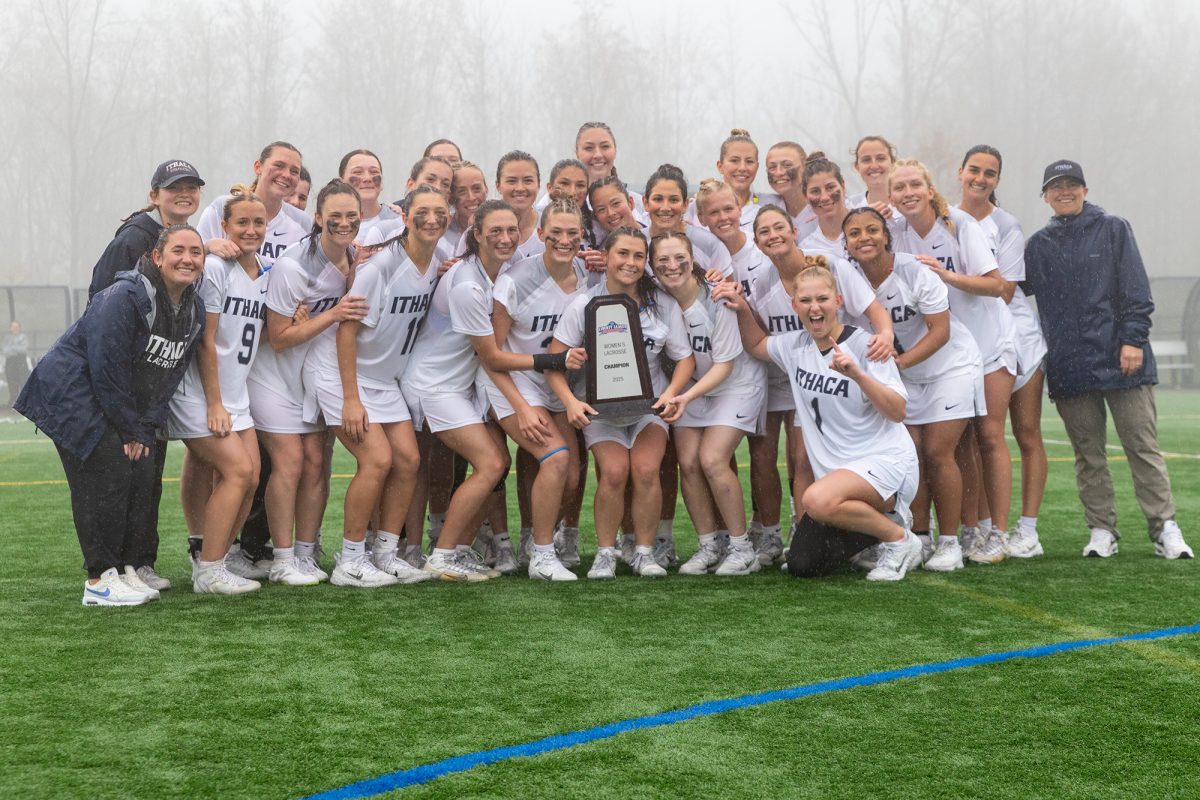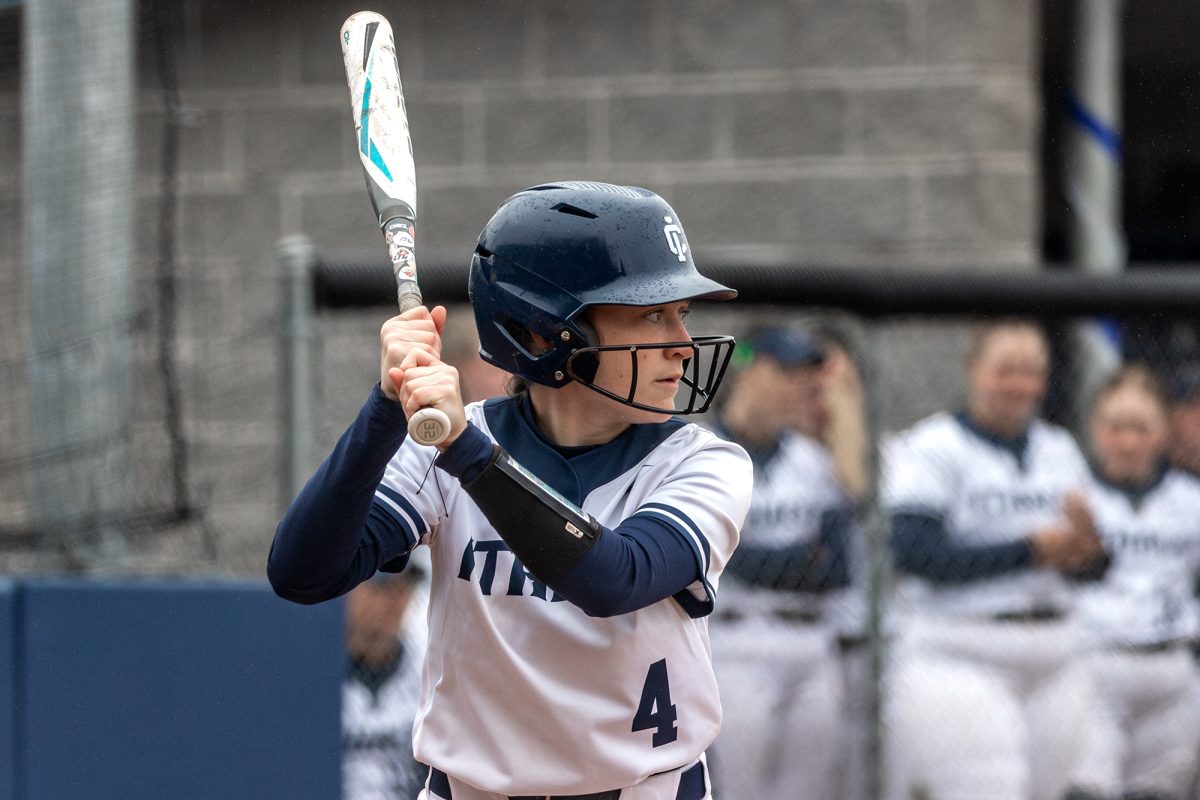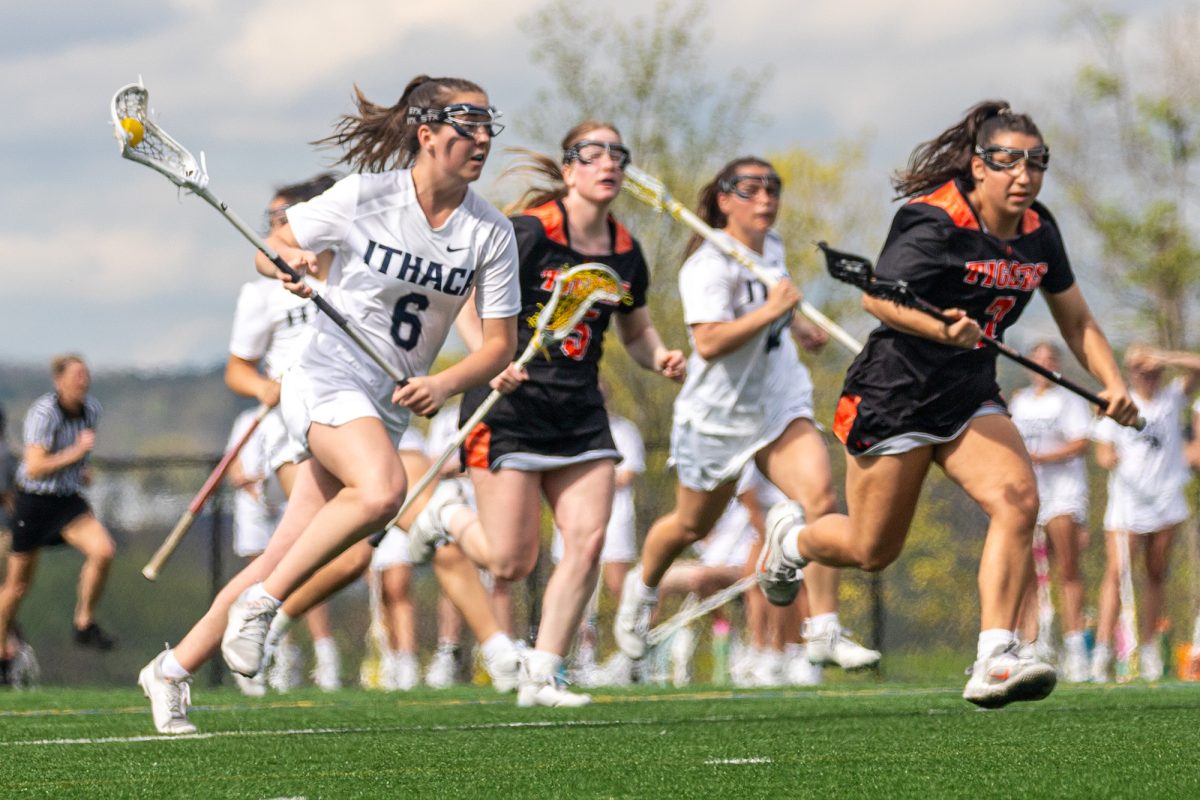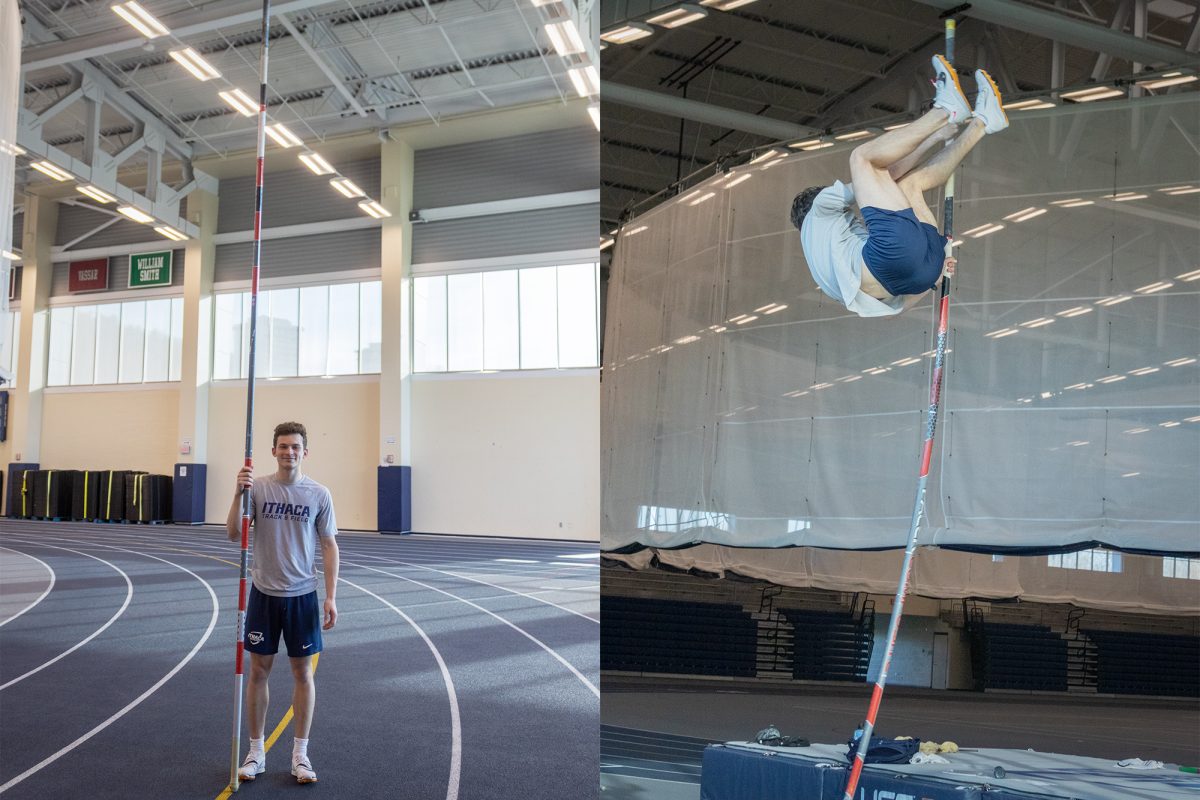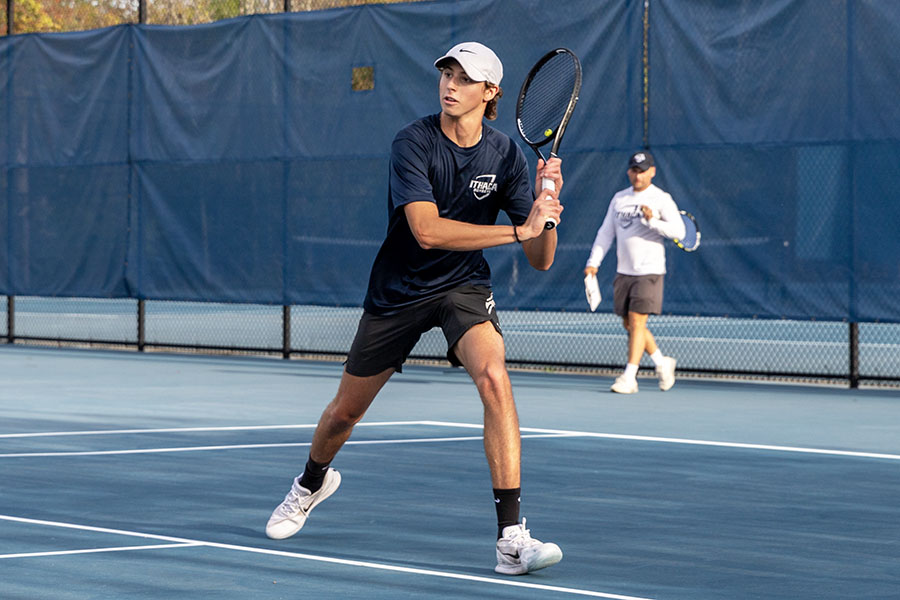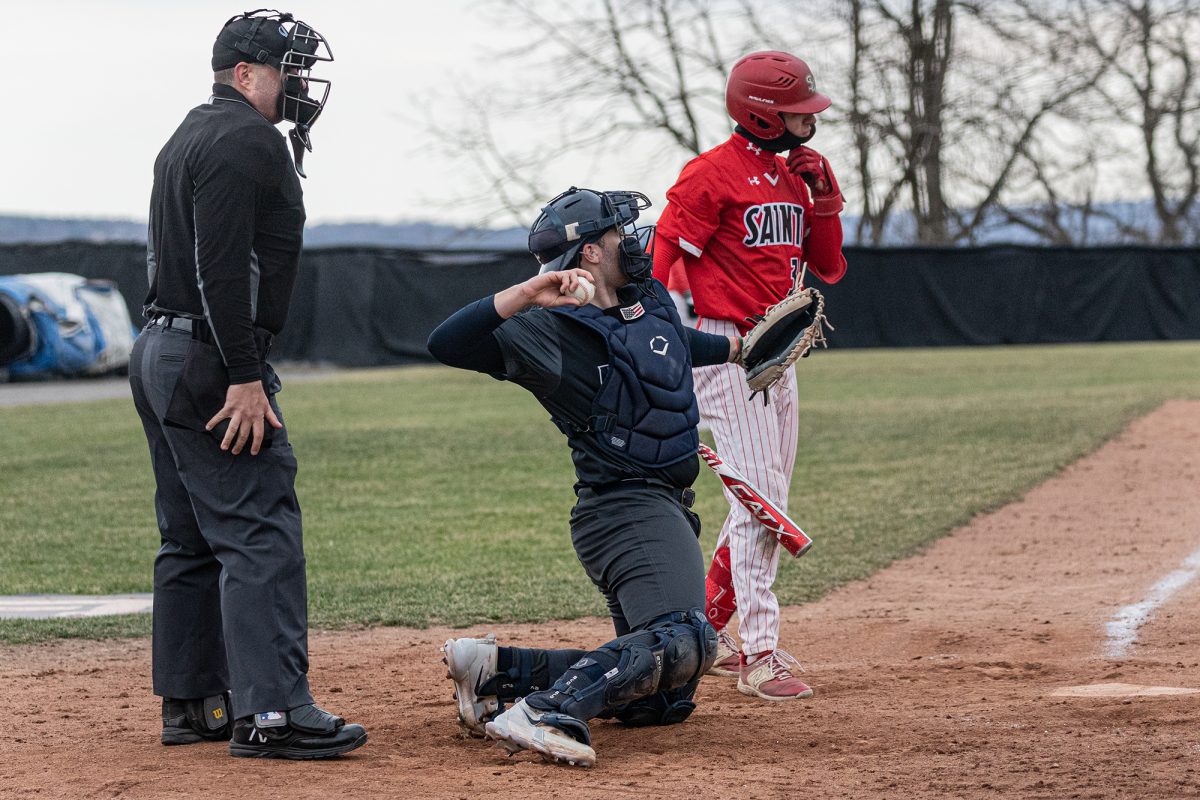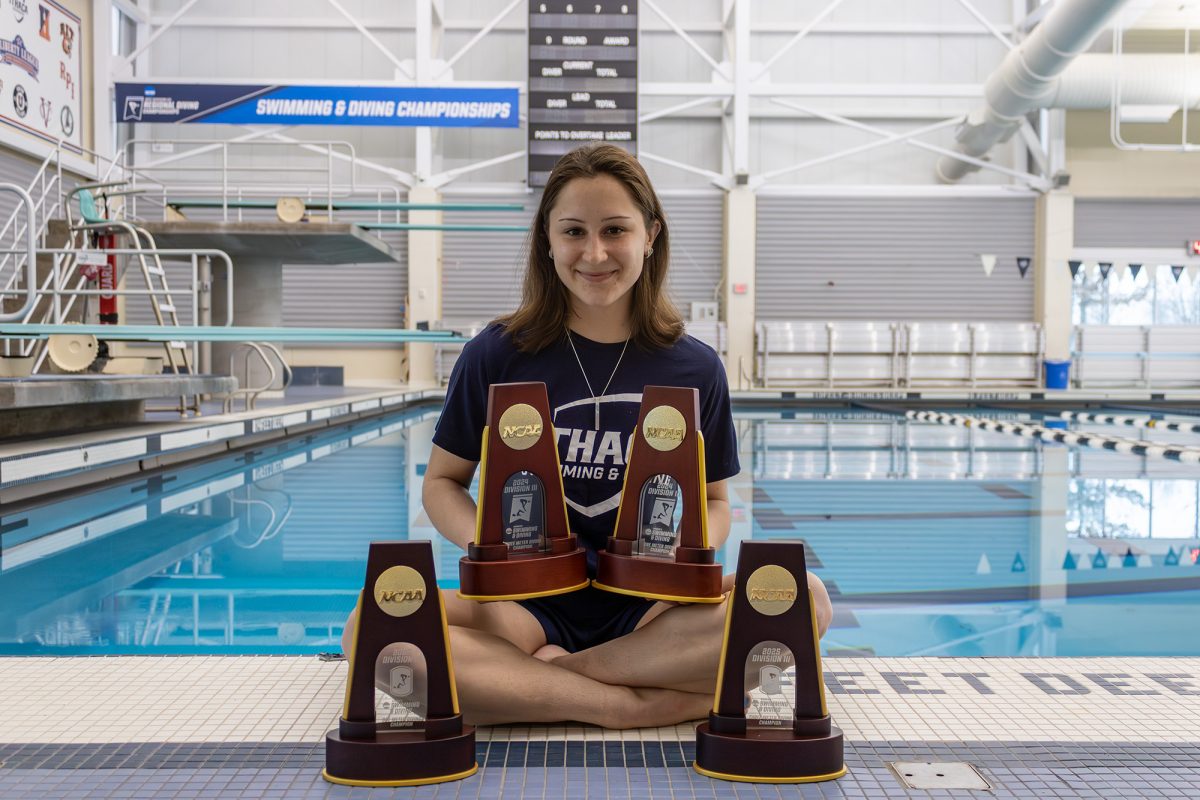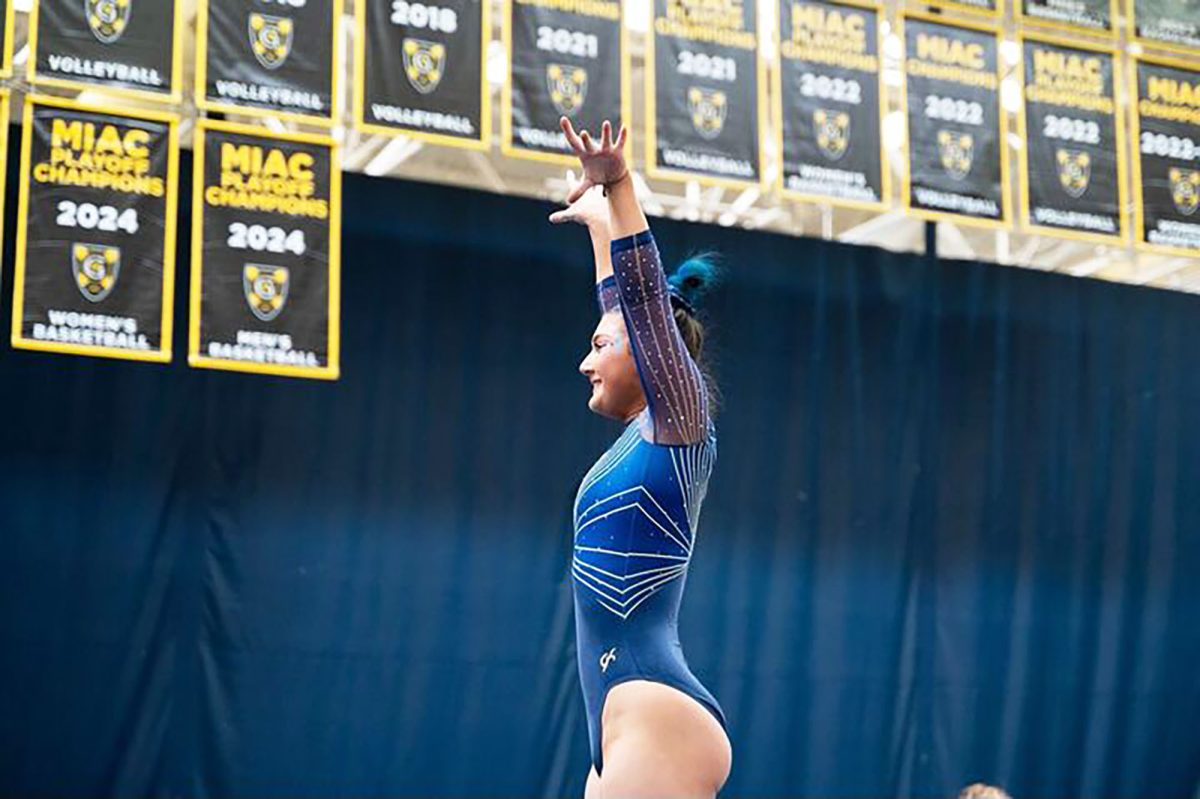As student athletes trickled into Emerson Suites on Feb. 21, a panel of seemingly unrelated guests shared the stage, and five of Ithaca College’s MBA students had the opportunity to watch the event they had been planning since August 2022 finally come to life.
The panel event, entitled “Strong Bodies & Minds,” was organized by graduate students Christian Bassi, Blake Eischen, Brady Lynch, Luka Radovich and Sophia Titus as a part of the MBA program in collaboration with South Hill Entertainment, the college’s production company staffed entirely by students. All of the group members except for Titus are also student-athletes at the college.
The event — including Connor Buczek, Cornell’s men’s head lacrosse coach, Katie Lever, former Division I distance runner from Western Kentucky University and Blaze Riorden, Premier Lacrosse League goalkeeper — allowed the three elite athletes to share their experiences and advice regarding the pressures of high-level sports with a new generation of student-athletes.
Lynch, who is a member of the college’s women’s basketball team, said that the aim of the project stemmed largely from the lack of applicable advice on mental health that student-athletes are generally offered.
“There are so many mandatory mental health events and meetings that [athletes are] supposed to do, but how much of that is actually helpful?” Lynch said. “Our goal was [to] create more of an interactive, candid environment where people can just have a conversation with these panelists and gauge their input.”
In a conversation led by Greg Shelley, senior director of sports leadership and mental conditioning at Cornell University, the three panelists reflected on their time competing in hopes of offering the audience some valuable pieces of advice in terms of staying mentally healthy while pursuing collegiate athletics.
Whether it was body image, injury psychology or disordered eating, the panel touched on countless topics that have been plaguing student athletes. In a survey conducted by Daniel Eisenberg, a professor at the University of Michigan School of Public Health, he found that 33% of all college students experience significant symptoms of depression, anxiety or other mental health conditions. Among that group, 30% ask for help. However, of collegiate athletes with mental health conditions, only 10% seek support.
For Eischen and Bassi, two members of the college’s men’s lacrosse team, having Buczek and Riorden participate on the panel made the project that much more personal to them. Bassi said that, as a goalkeeper himself, the opportunity to work with Riorden was something he could never pass up.
“When we got [Riorden] on board, I was just so excited to work with him,” Bassi said. “Being in that same position on the field … there were some things I knew I had to pick his brain about.”
Goalkeepers across all sports often have a very different relationship with their respective games than their fieldplayer teammates. In 2009, former NHL journalist and goalkeeper Justin Goldman launched The Goalie Guild, a nonprofit foundation dedicated to supporting the mental health of hockey goalkeepers.
Riorden, who has competed as a goalkeeper professionally since 2016, said that although his position in the cage can get isolating, it has always been his teammates who have kept him grounded.
“You show up to college by yourself and within one day you have 47 brothers,” Riorden said. “Being able to look around the locker room and knowing that all these guys are feeling the same hardships after a loss or a hard day at practice … knowing that they’re all in it for the same reason I am is something that brings me a lot of comfort.”
Buczek, a decorated Cornell 2015 graduate who recently led his team to its first NCAA Final Four since 2013, said that knowing the event is coming from his own community gives him some confidence that the mental health conversation is moving in the right direction.
“As a guy who’s been a part of the Ithaca lacrosse community for a long time, it’s really exciting to see these student-athletes taking that next step forward and having these important discussions on a stage like this,” Buczek said.
Buczek said that when Bassi had connected with him during the fall semester, he was thrilled to get involved with the panel and shed some light on an integral part of the sports world.
“[Mental health] is a topic that’s not discussed nearly enough and it’s certainly something that needs a little more attention, so I was happy to get involved,” Buczek said.
Similar to the local connection with Buczek, the students were introduced to Lever through Ellen Staurowsky ’79, professor in the Ithaca College Department of Media Arts, Sciences and Studies. Titus said when Staurowsky had given the group a list of potential panelists, she knew Lever’s expertise would be valuable to the project.
“[Lever] is a former D-I athlete and now she’s getting her Ph.D. studying NCAA rhetoric around mental health,” Titus said. “She brings such a cool insight because not only has she been a student-athlete and a published author, but she’s literally becoming an expert in this field.”
At the event, Lever said that putting herself out there has played an important part in her adjustment to life after sports, and that her participation in the panel was a result of that effort.
“I still love to challenge myself and step out of my comfort zone, it’s something I crave especially as a retired college athlete,” Lever said. “Doing something like this gives me the opportunity to step onto that kind of platform again and see what I can do.”
Riorden’s involvement, however, came from a more familiar connection — he is engaged to Titus’s cousin. Titus said that when she reached out to Riorden, he was already prepared to get to work.
“When I asked [Riorden] if he would be interested, I didn’t want him to say yes just because we’re family,” Titus said. “He understands how important mental health is to young athletes and it’s a cause that he’s truly connected to. He hasn’t done anything like this before, so he really was excited to jump in.”
At the event, Riorden was able to expand upon his time competing at the professional level and how his time with the Premier Lacrosse League has impacted his life outside of sports.
“One of the biggest things I’ve learned as I’ve gotten older is that the most growing you’ll do is by learning from other people and their experiences,” Riorden said. “Using other peoples’ experiences to be able to manage my own has been huge in my growth on and off of the field.”
For Titus, building mental strength as an athlete is part of practicing self care. Although much training focuses on the physical body, the mental aspect of sports can be just as important to those playing it.
“We want athletes to know how to take care of their whole self,” Titus said. “The last thing they need is an Achilles’ heel in their brain.”


